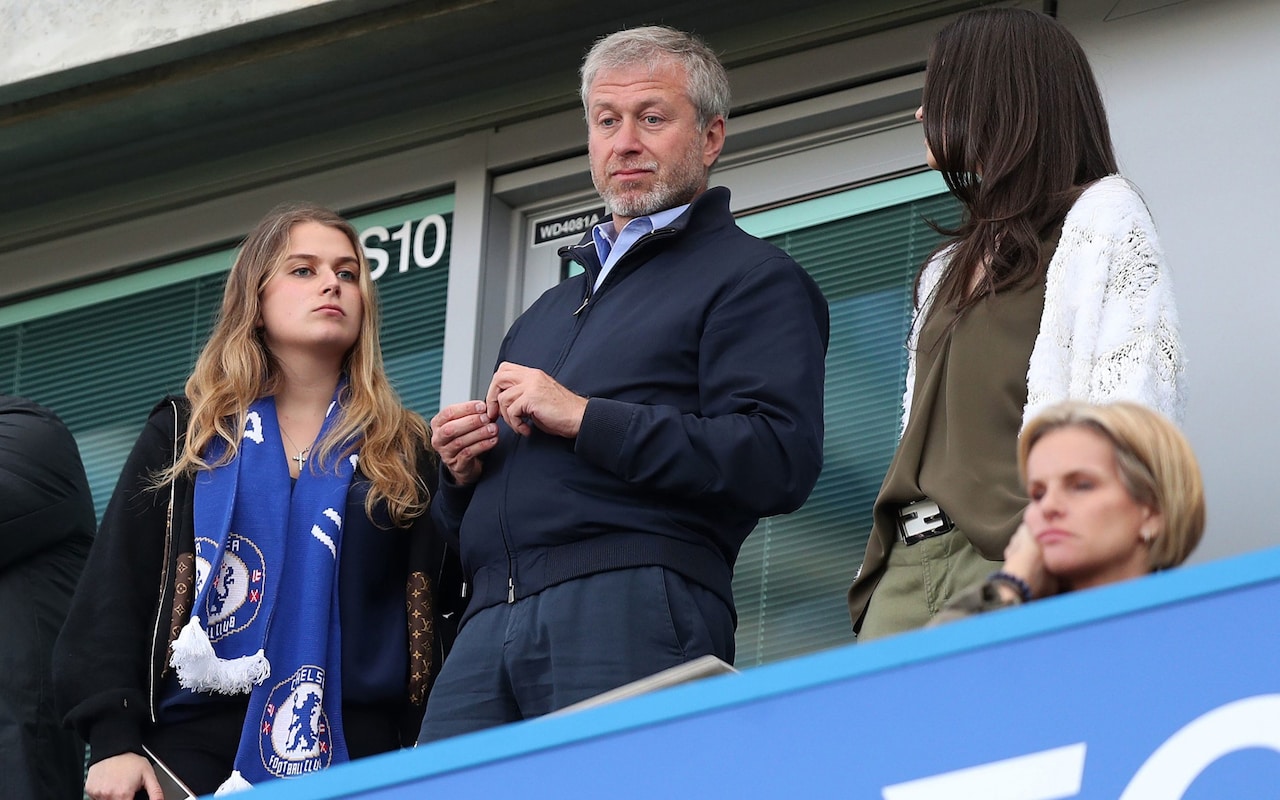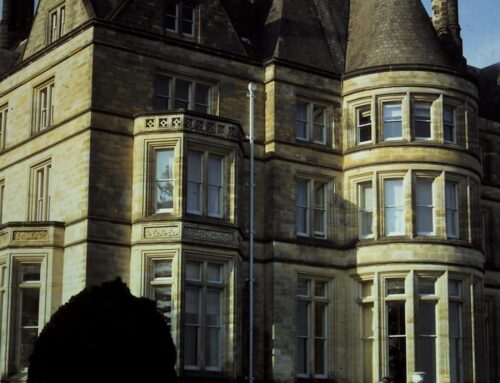4 March 2022 • 5:00am
While the billionaire is trying to dispose of his Western assets in a fire sale, there’s one question everyone is asking: Where is he now?
Every empire has its seat of power, and for Roman Abramovich that was the corporate box at Stamford Bridge. After he bought Chelsea football club for an estimated £140 million in 2003, on match days the box would be awash with politicians, diplomats and oligarchs. Beyond an opportunity to enjoy a luxury spread, a ticket granted access to the busiest diplomatic back channel in West London.
Every home game became an opportunity to conduct deals: business, personal and – crucially, as far as keeping the Kremlin onside goes – political. According to club accounts, before Abramovich stopped attending games three years ago following wrangles over his UK visa, he had spent between £1 million and £3 million on the hospitality boxes every year since 2011.
One former visitor to Abramovich’s box described an “extraordinary” roster of attendees, including “senior members of the Russian, British and American governments”. The former US President Bill Clinton was spotted at one match, and former Italian Prime Minister Matteo Renzi at another.
At the centre of it all stood Abramovich: a blue Chelsea scarf draped over the expensively dressed-down attire of a billionaire on his day off. Sometimes, he would be flanked by one of his seven children, or one of his three former wives. The Stamford Bridge faithful would sing the name of this modern day emperor.
Now, however, the 55-year-old’s seemingly untouchable power appears to be ebbing away. While he has so far escaped sanctions or the seizure of assets which have affected other oligarchs, the net appears to be tightening.
Labour leader Sir Keir Starmer has called on the Government to add the Russian to its list of sanctioned oligarchs, while the Labour MP Chris Bryant has claimed, using parliamentary privilege, that Abramovich was identified by the Home Office in 2019 as having links to the Russian state as well as to “corrupt activity and practices”. The jailed opposition leader Alexei Navalny, meanwhile, has accused Abramovich of being one of Putin’s 35 “key enablers”.

Mark Hollingsworth, Abramovich
Abramovich, who amassed his fortune during the privatisation of Russian state assets following the fall of the Soviet Union, disputes any reports suggesting his alleged connections to Putin, or that he has done anything to merit sanctions.
Nonetheless, perhaps in anticipation of what is to come, the man who is worth an estimated £9.2 billion has embarked on a fire sale of his Western interests. He has put Chelsea up for sale through American bank the Raine Group, with a price tag of £3 billion. One prospective buyer, Swiss billionaire Hansjörg Wyss, described Abramovich as “in a panic” adding, “he is trying to sell all his villas in England”.
That portfolio includes his 15-bedroom mansion in Kensington Palace Gardens replete with underground pool – yours for £170 million. There are several luxury flats on Lowndes Square in Knightsbridge, worth a total of £50 million and registered in the name of a Seychelles company called LS Investments.
He is also seeking buyers for a triplex penthouse in the 37-storey Chelsea Waterfront building, potentially worth another £30 million. It has floor-to-ceiling windows with panoramic views across Abramovich’s beloved Chelsea stadium. He also owns Château de la Croë, a 19th century villa on an exclusive section of the French Riviera, previously home to the Duke and Duchess of Windsor, and a 200-acre ranch in Aspen, Colorado.

Abramovich and Putin during a meeting with top businessmen while visiting the Sirius education center in Sochi in 2016. Abramovich disputes any reports suggesting his alleged connections to Putin CREDIT: Getty
As the West unites to cut Russia off from its financial markets and threatens to impose further sanctions, the question for Abramovich now is – where will he go?
One clue lies inside Stamford Bridge. Last November, Abramovich made a surprise appearance, hosting the Israeli president Isaac Herzog for an event campaigning against anti-Semitism. So low profile was Abramovich’s visit that he was not even picked out by television cameras during the subsequent game.
Since being granted Israeli citizenship in May 2018, Abramovich has forged close ties with the country. In 2019, it was reported he had bought a £50 million mansion in the coastal city of Herzliya and a property in Tel Aviv.
According to the Times of Israel, since 2018 Abramovich has donated in the region of $500 million to Israeli and Jewish causes and become the second largest private donor to Israel’s holocaust museum, Yad Vashem. Just last week he reportedly made a “generous eight-figure donation”. Abramovich’s largesse has prompted the museum to call on the US to leave him out of any future sanctions. And should Putin turn on Abramovich, as he has previously done with a number of Russian oligarchs, it is unlikely that, as a Jewish citizen, Israel would agree to any extradition.
Cyprus is another country on which Abramovich has relied for the management of his assets. His aforementioned Kensington mansion, for example, is registered in the name of a Cyprus company called Acmonius Ltd. However the island, previously dubbed Moscow-on-the-Med for its Russia-related business income – which at one stage was equivalent to about 14 per cent of its GDP – has approved EU sanctions on Russian cash, making it far less of a safe haven.

Mark Hollingsworth, Abramovich
Five of those children are with his second wife, Irina, a former Aeroflot stewardess who is based in London. Eldest daughter Anna is a philosophy graduate and lives in New York. Sofia, who studied management and marketing at Royal Holloway University, regularly posts pictures of her lavish lifestyle on Instagram and, earlier this week, shared an anti-Putin message. Arina is a showjumper. His son, Arkadiy, may prove slightly more exposed to the current international turmoil due to what are thought to be extensive business interests in Russia and London. He is the founder of private investment vehicles ARA Capital and Weybridge Capital Partners.
The extent of their wealth is not known but it may be protected through the £155 million divorce settlement Abramovich agreed with Irina in 2007, which reportedly included the couple’s West Sussex retreat Fyning Hill, a £12 million, eight-bedroom country pile set in 420 acres of parkland.
Other London properties – two houses on Chester Square, Belgravia, bought for £19.6 million, and a flat on Eaton Square (known as “Red Square” for the number of Russians living there) purchased for £13 million – were also reportedly given to his second wife.
Wherever Abramovich ends up, it is unlikely to be the corporate box in Stamford Bridge any time soon. The glory days are well and truly over.
Additional reporting by Jim White and Matt Oliver






